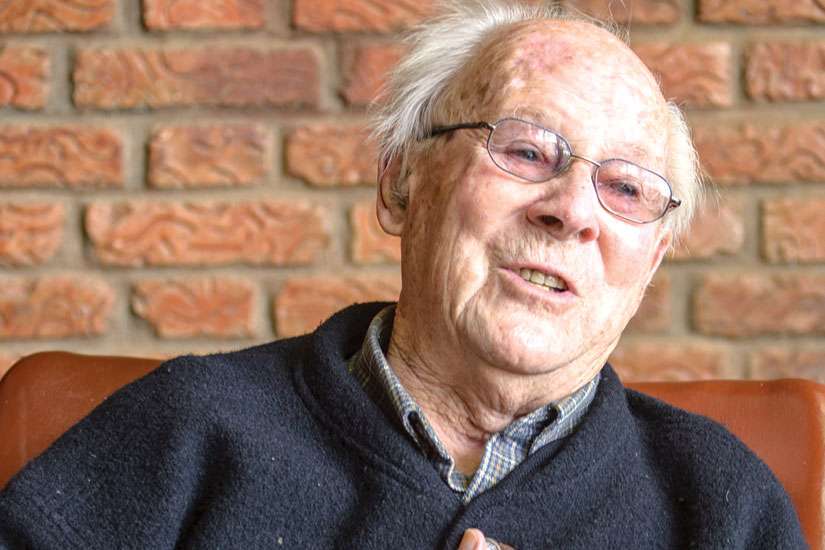Fr. Roland Turenne is now 92 years old. His 64 years in Ethiopia include much more than his year of staring down famine. But watching people die and cherishing the ones who lived, being there to serve the country and people to whom he has given three quarters of his life, is the perfect example of what a missionary is for.
Turenne had already been in Ethiopia 30 years when legendary Jesuit Father General Pedro Arrupe came calling. Arrupe was already pushing the Jesuits to do something about the situation faced by Vietnamese boat people scattered across the South China Sea and the Pacific Ocean, but he was alert to the growing problem of displaced Africans caught up in war, revolution and droughts.
At a 1982 meeting with African Jesuit superiors in Nairobi, Kenya, Arrupe took the Canadian aside for a chat about refugees in Ethiopia. Turenne didn’t know why the Father General wanted to see him. He was nervous. He wondered what he might have done wrong.
“He said, ‘You, you’ — he was like this,” Turenne told me at the Galilee Retreat Centre where he still directs people in the Spiritual Exercises of St. Ignatius of Loyola. “‘What are you doing for the refugees in Ethiopia?’ (I said) ‘Father, I’m sorry, but we’re not doing anything.’ ”
That wasn’t an answer as far as Arrupe was concerned.
“‘Well,’ he said. ‘Why not?’ I said ‘Father, we are involved in education. It’s not been our thing.’ ”
But, in fact, Turenne’s career as a geography teacher at Tafari Makonen High School was already winding down and he was helping out a French Catholic charity, Terre Des Hommes. That placed him near the Ethiopian government’s relief commission.
Turenne’s first team of veteran Belgian Jesuit missionaries and Spanish Dr. Isabele Arbide, who was with the Franciscan Missionaries of Mary, were given a base for their operations in Awasa, 300 km south of Addis Ababa.
“Then the drought erupted in that region” — that region being Tigray, 300 km north of the capital. But the new Jesuit team had a mobile medical unit, so Turenne went looking for a place where it could be put to use.
“We said, ‘Which is the hardest place to access? Which is the worst place, worst affected?’ ” he recalled. “Within two weeks we were there feeding.”
What was asked of Turenne in Tigray was more than his drive, his organizational smarts or even his endless kindness could simply fix.
“I saw people coming on all fours, yeah? They were dying of starvation. They were starving,” he said. “I remember this. It has always remained in my mind. It always remained. That lovely young woman, she was sitting against a tree. And I asked Dr. Isabele, ‘Well, what’s wrong with her? You feed her.’ She said, ‘She is beyond feeding.’ ”
The next morning the young woman leaning against the tree was dead.
“There were thousands like that,” said Turenne.
Hundreds of aid agencies followed the JRS into the famine lands and eventually the millions upon millions of dollars (Canadians gave $150 million in response to the “Tears Are Not Enough” song and campaign) followed. But Ethiopia’s pain wasn’t over.
Today the JRS in Ethiopia is just one part of Jesuit Refugee Service operations throughout Africa, the Middle East and Asia. In Addis Ababa it runs a community centre for urban refugees. It is present in two of the five refugee camps near Dollo Ado, on the Somali border. It has programs for child refugees separated from their families in the Mai Aini camp near the Sudan border.
Turenne doesn’t find JRS’s success surprising. He attributes it to the vision of Pedro Arrupe.
“When you met with him you had the impression that you were not far from God, I tell you,” said Turenne. “Compassionate like Christ.”


